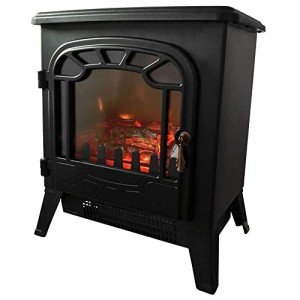10 Mobile Apps That Are The Best For Best Fireplace
The Best Fireplaces: A Comprehensive Guide for Homeowners
Fireplaces have actually long been a precious feature in homes, offering both warmth and a welcoming atmosphere. They come in numerous styles, sizes, and fuel types, allowing house owners to choose one that fits their individual visual and heating needs. This post delves into the very best fireplaces, highlighting key functions and considerations to assist you make an informed choice.
Types of Fireplaces
Understanding the different types of fireplaces is important in picking the very best choice for your home. Below are the most commonly used fireplaces:
Wood-Burning Fireplaces
- Benefits: Traditional appeal, natural atmosphere, and efficient heating.
- Drawbacks: Requires regular upkeep, ash disposal, and is subject to local policies concerning emissions.
Gas Fireplaces
- Advantages: Convenient, clean-burning, and simple to run.
- Drawbacks: Requires a gas line, can be more pricey to install at first.
Electric Fireplaces
- Benefits: Easy setup, low upkeep, and the safest option for homes with children or animals.
- Drawbacks: Lack the genuine feel of wood or gas flames, may not heat up large areas effectively.
Pellet Stoves
- Benefits: Eco-friendly, efficient, and provide a stable heat output.
- Drawbacks: Requires electrical power to run, and pellet supply can be limited in some areas.
Ethanol Fireplaces
- Advantages: No chimney required, portable, and environmentally friendly.
- Drawbacks: Generally less effective for heating.
A Comparison of Fireplace Types
Type
Setup Cost
Running Cost
Heat Output
Upkeep
Environmental Impact
Wood-Burning
₤ ₤
₤
High
High
Moderate
Gas
₤ ₤ ₤
₤ ₤
Medium-High
Low
Moderate
Electric
₤
₤ ₤
Low
Very Low
Low
Pellet
₤ ₤
₤
Medium
Medium
Low
Ethanol
₤ ₤
₤ ₤ ₤
Low
Very Low
Really Low
Leading Considerations When Choosing a Fireplace
When you're in the marketplace for a new fireplace, keep the list below consider mind to guarantee you pick the very best one for your home:
Purpose and Functionality: What do you desire your fireplace to do? Is it for heating or aesthetics? This will guide your option considerably.
Space Availability: Measure the area where you desire to install the fireplace. Guarantee the chosen type fits without frustrating the area.
Fuel Source: Assess the schedule and expense of different fuel sources in your area to avoid unexpected expenditures.
Setup Complexity: Some fireplaces may need substantial changes to your existing home structure.
Structure Codes and Regulations: Be conscious of local laws regarding ventilation, security, and emissions, as these can influence your fireplace option.
Aesthetic Appeal: The style and style of a fireplace can function as a centerpiece or complement the existing design, so pick one that enhances your home's general aesthetic.
Advantages of a Fireplace
Adding a fireplace to your home pays for many benefits:
Enhanced Aesthetic Appeal: A fireplace can raise the decor of any room, producing a cozy and welcoming atmosphere.
Increased Home Value: A well-installed fireplace can include significant value to your home, making it attracting prospective purchasers.
Energy Efficiency: Modern fireplaces, especially gas and pellet ranges, can supply efficient heating while lowering energy expenses.
Emergency Heat Source: In cases of power blackouts, a wood or gas fireplace can function as a trusted heat source.
Social Gathering Space: Fireplaces typically become the centerpiece for events, promoting warmth and comfort throughout household or good friends' get-togethers.
Often Asked Questions (FAQs)
**Q: How much does it cost to install a fireplace?A: Installation costs can differ substantially based on the kind of fireplace, structural requirements, and labor expenses. Basic electric fireplaces may cost around ₤ 300, while custom-made wood or gas fireplaces can run from ₤ 3,000 to upwards of ₤ 10,000. Q: Are electric fireplaces safe?A: Yes, electric
fireplaces are generally safe.
They do not produce carbon monoxide and have no open flames. They typically consist of security features like automatic shut-off systems. Q: How frequently ought to I have my chimney cleaned?A: If you utilize a wood-burning fireplace, it's advised to have your chimney cleaned up at least as soon as a year
**
to prevent creosote accumulation, which can lead to chimney fires. Q: Can I set up a gas fireplace myself?A: It's not a good idea to set up a gas fireplace without expert help due to the complexities related to gas
lines, ventilation, and safety policies. Q: What are the best types of fuel for wood-burning fireplaces?A: The best fuel options include well-seasoned hardwoods like oak, maple, or hickory, as they burn hotter and cleaner compared to softwoods. Choosing the best fireplace for your home
includes thinking about many elements, from aesthetic appeals to function and safety. Each kind of fireplace has its unique advantages and prospective disadvantages.
Understanding these aspects, together with your personal heating needs and budget plan constraints, will assist you in making an informed choice. Ultimately, Fireplace Styles can supply not just heat however also an abundant atmosphere, changing your home into a welcoming sanctuary. 